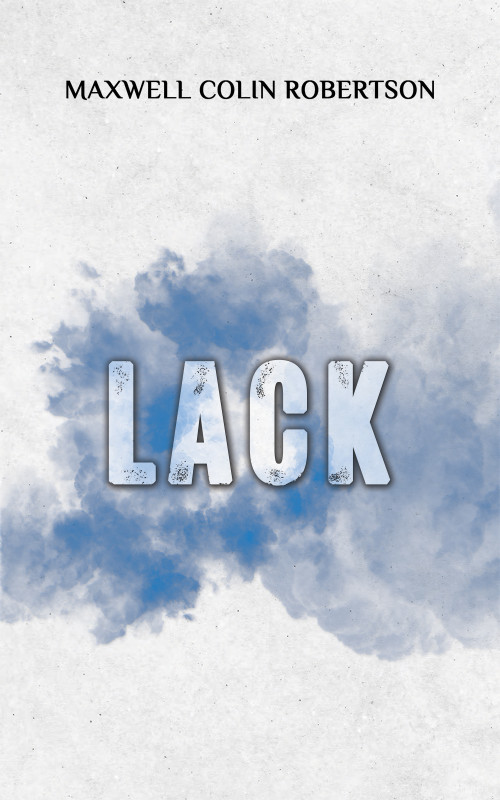
*Available directly from our distributors, click the Available On tab below

The author has studied and tutored English and writing while earning a more prosaic living until recent decades. Recent incarnations have included tutoring Effective Writing, Critical Reading, and Reading and Writing the Short Story at James Cook University Cairns Campus in North Queensland. A longtime love of science fiction, the author’s homosexuality and the developing climate crisis have coalesced into a parable of possibility revealing the strength inherent in human variability.
Lack raises important questions and provokes thought, but more importantly it's a good read. A bloody good read. It bumps along, with some pretty abrupt swerves, so you're not going to be bored. And there are sections of startling clarity which draw you into what must be lived experience. Worth reading, and an author worth watching.
This is a compelling read; beautifully written, engaging and thought provoking in so many ways. It's genre-bending, somehow both scholarly and newly literary. Robertson creates his own surreal world, beautifully observed in all its un-earthly discomfort. The reader walks into a dark bar with Geet`; the patrons and the atmosphere are both familiar and unfamiliar- there are wines from Antarctica and Afro-Irish music. At the Alphas the women hunt the men.Somehow, the scenario seems to be a weirdly logical extension of our own times.It's a dark, aware vision that is a truly worthy addition to what has become known as the New Weird. I was reminded of the writings of China Mieville. Robertson's work is a worthy and innovative addition to a contemporary fiction. I strongly recommend it.
The author creates a compelling thought experiment designed to provoke not only the questioning of humanity’s often deadly prejudices, but also the very tenability of our existence. This is achieved through the employment of an ingenious ‘flip’, whereby society’s established sexual mores are inverted so as to subvert expectations surrounding sexuality; the heterosexual world is ‘made strange’ and the reader invited to empathically experience what it is to be ‘other’. The author’s prose is evocative and inventive, sustained by a gripping narrative arc and a strong underlying creative premise. Indeed, such is the breadth of inter-stellar exploration that in the end we are left with the tantalising question of whether we are witnessing humanity’s very end…or very beginning.
Lack is genuinely terrifying. Maxwell keeps the reader in unadulterated suspense right until the final climax which is not only terrifying but a sad indictment of what could very well be the future of humanity. I couldn’t put it down and enjoyed every minute.
Take a walk into a dystopian future, where everything you believe is turned against you. Where you must walk in another’s shoes to understand the effects of prejudice. In this struggle to save humanity from its own nature watch the action play out before a well-meaning but empathetic free-zone, who puzzles over human emotions beyond their comprehension, and wonder what it would be like to live a life like this.
Lack by Maxwell Colin Robertson is a story based around a “generation” colonisation ship that is attempting to travel to the nearest planet outside of our solar system. This term refers to a journey and sci-fi genre that takes over a single generation to complete. The journey begins after the world has hit the Climate Change Wall and the world’s biome is collapsing and continues to collapse. In an attempt to give the planet one last chance to recover, and in a desperate attempt to drastically reduce the population as a last resort, a deadly virus is manufactured to kill all of humanity with the newly discovered heterosexual genetic markers amounting to approximately 90% of the population. This does not work and people continue to stream away from the Moon, where all of the colonising vessels leave from. On board each of the spaceships, only homosexual people are allowed because of the proven unreliability of heterosexuals when it comes to unwanted breeding. The “hero”, Dame, is heterosexual and discovers another heterosexual woman on board their ship, and they “accidently” create a pregnancy. What should the colonists do with this gross breach of the rules? The actions taken leave the colonists with changed priorities and an uncertain future. The story asks: What is our future? What is the human animal and which is the best model? How does humanity control its greatest threat – that of overpopulation? The ending is a bit of a brain-burn, requesting an existential decision of the reader as it does, but what at first seemed like a simple proposition has given me many hours of thought.
We use cookies on this site to enhance your user experience and for marketing purposes.
By clicking any link on this page you are giving your consent for us to set cookies